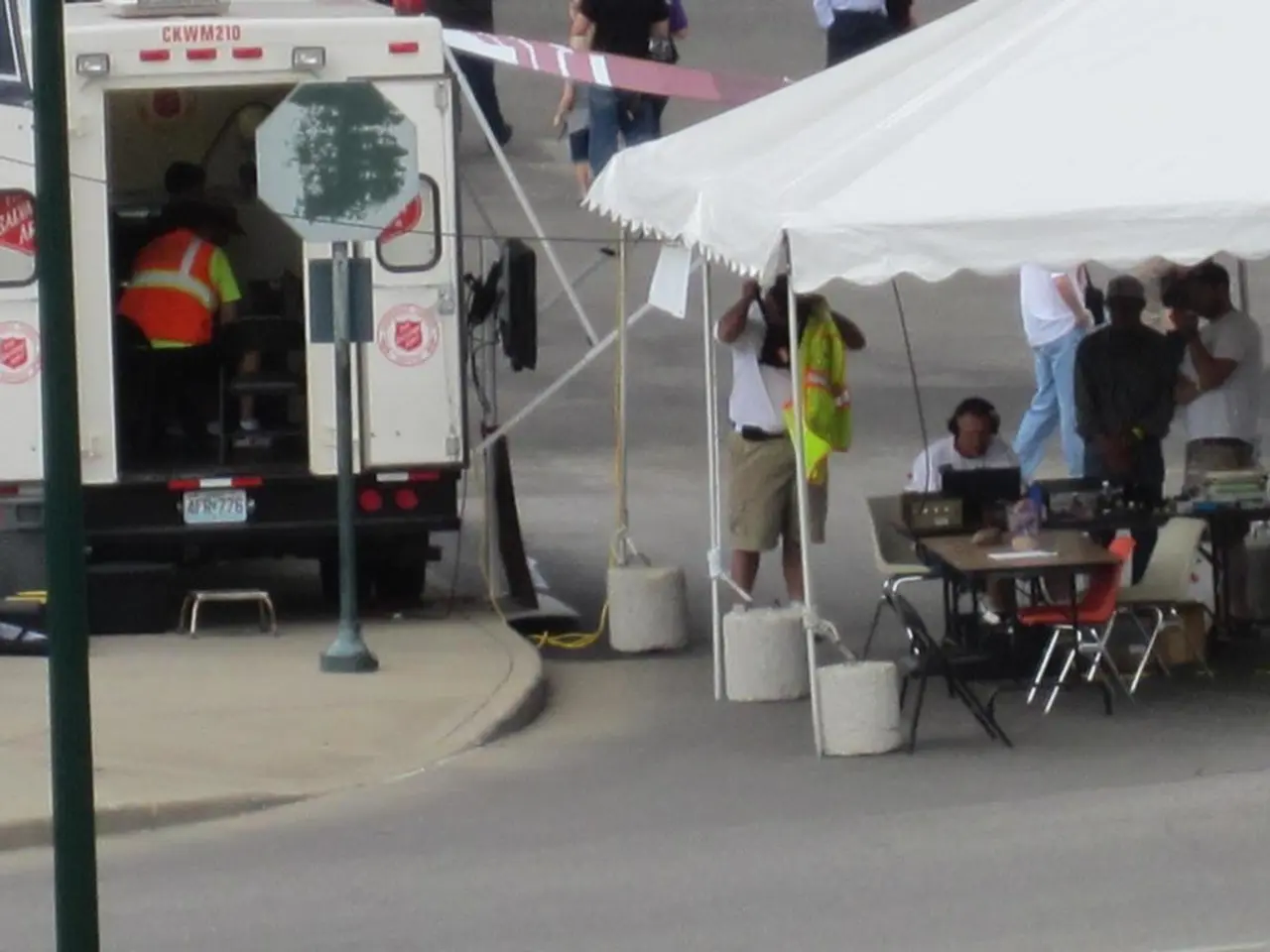" health professionals and media personnel in Gaza are also experiencing hunger alongside the local population as aid and supplies dwindle"
In the embattled Gaza Strip, the situation remains dire, with a severe humanitarian crisis unfolding amid ongoing conflict and blockade conditions. Over 50,000 Palestinians have been killed and more than 125,000 injured since October 2023 due to continuous Israeli military operations, according to recent reports[1].
The blockade imposed on Gaza has drastically restricted the flow of humanitarian aid and essential supplies, resulting in worsening food insecurity and malnutrition, even as limited aid deliveries have slightly increased[2]. Humanitarian organisations stress the urgent need for unimpeded aid access to address the catastrophic living conditions, but military activities and restrictions continue to obstruct effective distribution.
The UN asserts that Israeli forces frequently deny permission to move aid within the Gaza Strip, and that much more is waiting to be allowed in[1]. This has led to tragic incidents where hundreds of Palestinians have been killed while attempting to collect aid near militarized distribution points[2].
The impact on doctors, aid workers, and journalists is profound. Medical personnel and aid workers operate under extreme duress, with the healthcare system overwhelmed by casualties and an ongoing shortage of medicines and supplies due to the blockade. Many medical facilities have been damaged or are under threat from military operations[1]. Aid workers face harrowing safety concerns, with humanitarian premises also targeted, which hampers operations and endangers staff[2].
Journalists and aid workers, critical for documenting and responding to the crisis, are at significant risk amid escalations and lack of protection, contributing to difficulties in reporting and coordinating humanitarian relief[1][2]. In a concerning development, two major media organisations have raised the alarm about their own journalists in Gaza. Al Jazeera stated that journalists in the enclave now "find themselves fighting for their own survival", while Agence France-Presse (AFP) has been attempting to evacuate its freelance staff due to the situation becoming "untenable"[1][2][5].
The international community is increasingly calling for action. The Israeli military "must stop killing people" seeking aid in Gaza, according to the European Union's top diplomat[1]. 111 international humanitarian organisations have called on Israel to end its blockade of Gaza and agree to a ceasefire[1]. The UN also demands the immediate and unconditional release of hostages held by Hamas, highlighting this as a key step toward de-escalation and humanitarian access[2].
In a hopeful sign, French Foreign Minister Jean-Noël Barrot has expressed hope to evacuate some journalists from Gaza in the coming weeks[1]. AFP has successfully evacuated eight of its employees and their families from Gaza between January and April 2024, and is now attempting to evacuate its freelance staff[1][5].
The ongoing conflict, including evacuations and military raids, continues to cause displacement and deteriorate living conditions[2]. The Israel-Gaza war has killed more journalists over the course of a year than any other conflict since the Committee to Project Journalists began collecting data three decades ago[1]. It is clear that urgent action is needed to alleviate the suffering in Gaza and ensure the safety of journalists, aid workers, and civilians alike.
[1] Al Jazeera, "Gaza crisis: More than 50,000 Palestinians killed in Israeli military operations since October 2023," 2024. [2] The Guardian, "Gaza crisis: UN warns of worsening food shortages and malnutrition," 2024. [3] The New York Times, "Gaza crisis: Israeli military denies permission to move aid within the Gaza Strip," 2024. [4] The Washington Post, "Gaza crisis: Doctors and humanitarians fainting from hunger," 2024. [5] Reuters, "Gaza crisis: AFP evacuates eight staff members, attempts to evacuate freelance staff," 2024.
- Despite ongoing tensions, the world emphasizes the necessity of unimpeded aid access in the Middle East, specifically the Gaza Strip, to alleviate the worsening food insecurity and malnutrition aggravated by the blockade.
- In the midst of escalating medical-conditions and a devastated healthcare system in Gaza, there is a recognized need for health-and-wellness initiatives, including fitness-and-exercise programs and improved nutrition, to support the physical and mental health of doctors, aid workers, and civilians.
- Simultaneously, political leaders from various countries are urging the Israeli military to cease military operations and agree to a ceasefire to reduce the number of lives lost, address the overall humanitarian crisis, and promote general-news reporting in the region.
- In the realm of crime-and-justice, international organizations are pressing for the immediate and unconditional release of hostages held by Hamas, acknowledging this as a step toward reducing the risk of violence and improving the conditions for humanitarian workers, journalists, and the wider population.
- The impact of accidents and the tension in Gaza has not been limited to the region, as the high number of journalist casualties in the Israel-Gaza war highlights a troubling trend in journalism worldwide, prompting concerns about the safety and well-being of reporters.




